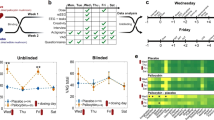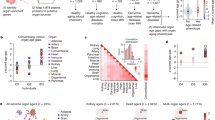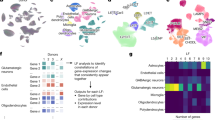Abstract
TRYPTOPHAN is the amino acid precursor of 5-hydroxytryptamine (5-HT) both peripherally and in the central nervous system, but the metabolism of tryptophan by way of the 5-HT pathway accounts for only 1 % of urinary tryptophan metabolites1. The major route of tryptophan metabolism starts with its conversion to formylkyneurenine by tryptophan pyrrolase2, and it has been suggested3,4 that depressive illness may be caused by the induction of liver tryptophan pyrrolase by plasma corticosteroids5, leading to decreased synthesis and turnover of 5-HT in the brain. We confirm the increase in activity of liver tryptophan pyrrolase produced by hydrocortisone and the decrease in activity by allopurinol reported by Curzon and Green2. Hydrocortisone also increased the concentration of ‘free’ tryptophan in the serum. Although the concentration of 5-HT in the brain was unchanged, tryptophan and 5-hydroxyindole acetic acid (5-HIAA) concentrations in the brain were also increased. ‘Free’ and total tryptophan concentrations in the serum were reduced by allopurinol injection, but concentrations of tryptophan in the brain were unchanged. These results are not compatible with the theory that the induction of liver pyrrolase by hydrocortisone induces the symptoms of depressions.
This is a preview of subscription content, access via your institution
Access options
Subscribe to this journal
Receive 51 print issues and online access
$199.00 per year
only $3.90 per issue
Buy this article
- Purchase on Springer Link
- Instant access to full article PDF
Prices may be subject to local taxes which are calculated during checkout
Similar content being viewed by others
References
Michael, A. F., Drummond, K. N., Doeden, D., Anderson, J. A., and Good, R. A., J. clin. Invest., 43, 1730–1746 (1964).
Green, A. R., and Curzon, G., Nature, 220, 1095–1097 (1968).
Curzon, G., Br. J. Psychiat., 115, 1367–1374 (1969).
Lapin, I. P., and Oxenkrug, G. F., Lancet, i, 132–136 (1969).
Knox, W. E., and Auerbach, V. H., J. biol. Chem., 214, 307–313 (1955).
Denckla, W. D., and Dewey, H. K., J. Lab. clin. Med., 69, 160–169 (1967).
Snyder, S. H., Axelrod, J., and Zweig, M., Biochem. Pharmac., 14, 831–835 (1965).
Giacalone, E., and Valzelli, L., J. Neurochem., 13, 1265–1266 (1966).
Knott, P. J., and Curzon, G., Nature, 239, 452–455 (1972).
Jequier, E., Robinson, D. S., Lovenberg, W., and Sjoerdsma, A., Biochem. Pharmac., 18, 1071–1081 (1969).
Gal, E. M., J. Neurochem., 22, 861–864 (1974).
Curzon, G., J. psychiat. Res., 9, 243–252 (1972).
Author information
Authors and Affiliations
Rights and permissions
About this article
Cite this article
HILLIER, J., HILLIER, J. & REDFERN, P. Liver tryptophan pyrrolase activity and metabolism of brain 5-HT in rat. Nature 253, 566–567 (1975). https://doi.org/10.1038/253566a0
Received:
Revised:
Issue Date:
DOI: https://doi.org/10.1038/253566a0
This article is cited by
Comments
By submitting a comment you agree to abide by our Terms and Community Guidelines. If you find something abusive or that does not comply with our terms or guidelines please flag it as inappropriate.



